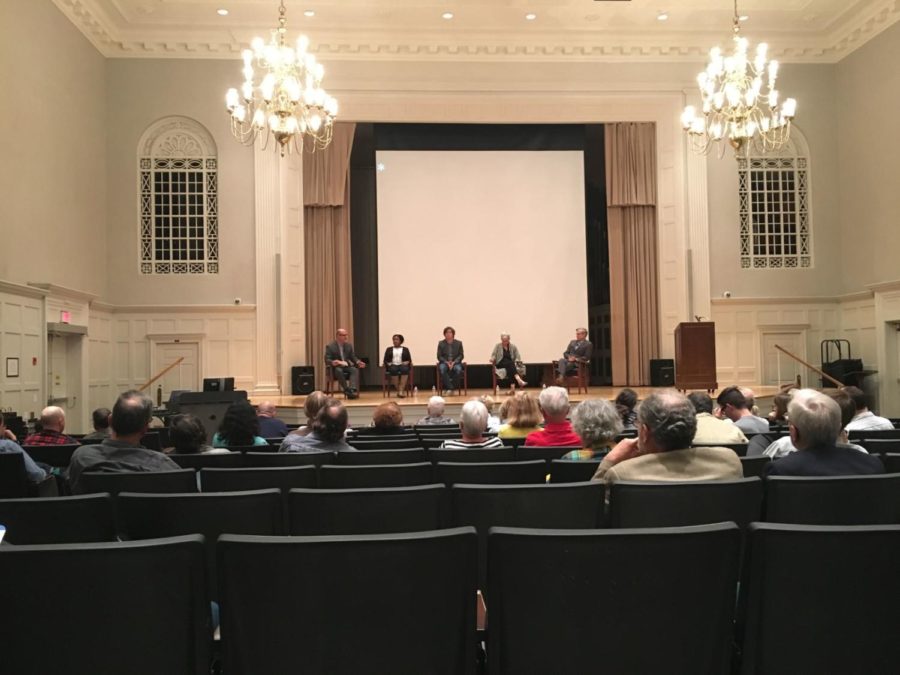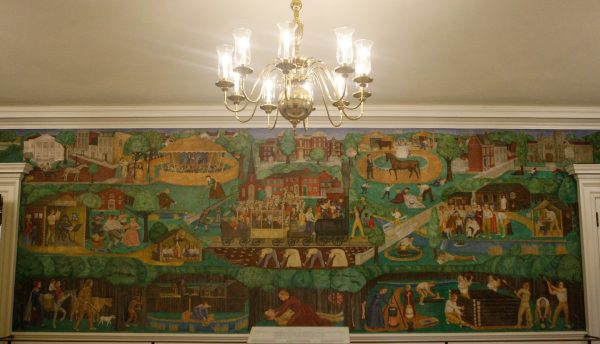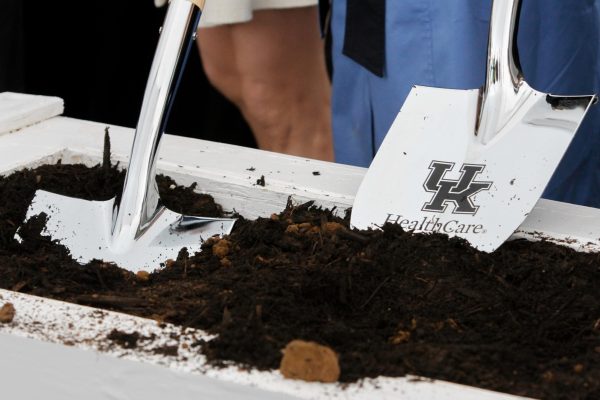UK learns the importance of paying attention at Bale Boone symposium
Through individual lectures and a group discussion, the panel at the Bale Boone symposium examined the practice of paying attention in a busy, media-crazy world on Monday.
October 6, 2016
The 2016 Bale Boone symposium began Monday with the presentation of “Paying Attention and the Way We Live Now.”
Speakers included William D. “Bro” Adams, Mira Schor, Michael David Murphy and Alyson West. Through individual lectures and a group discussion, they examined the practice of paying attention in a busy, media-crazy world.
Phil Harling, director of the Gaines Center for the Humanities, introduced the symposium as a “well-established fixture in the university’s calendar.” UK Art Museum Director Stuart Horodner took over to facilitate the event.
Adams began the “conversation we’re all always wanting to have.” While technology has increased connectivity to a degree, it has also lessened real human interactions, which Adams believes should be an area of humanities research.
Schor, a painter and writer, diagnosed herself as a social media addict as she recognized the importance of her iPhone in her life. However, she said that people today are “more interested in taking a selfie than what it is we are taking a selfie in front of.” She shared a personal drawing entitled “Death Takes a Selfie,” in which a skeleton photographs himself on his iPhone, to convey that people need to think about death, and therefore life, more often.
Michael David Murphy and Alyson West, who have been married since 2010 and ironically met online, presented about “We are the 15%,” which features photographs of interracial families.
Their project is all digital, and Murphy admitted that it would not have been possible in the pre-digital age. However, he loves photography because it causes the viewer to slow down.
“All this represents is love,” West said of their project, as it connects people across the country.
After each speaker had presented, Horodner and Harling led a panel with questions from the audience. The event was open to both students and the public.
Sophomore Tessa Blevins, a psychology major, needed to attend an academic event for a class.
“I chose this one because it seemed more relevant to every day lives,” Blevins said. The most important thing she learned from the discussion was to “pay attention to what nurtures you.”
Sophomore Seth Bidenbender, an agricultural and medical biotechnology major, also attended the event for a class and was really glad he did. He left with the question, “Should I embrace the new technology era coming in or fight against it?” He thought it interesting that technology created new creative outlets while destroying others.
Harling believed the event was successful because it was thought-provoking about “the take-for-grantedness of the hypermedia age we live in.”
The symposium continued with a screening of “The Destruction of Memory” on Oct. 5 and will have a keynote address by Michael Rock on Oct. 13.




















































































































































